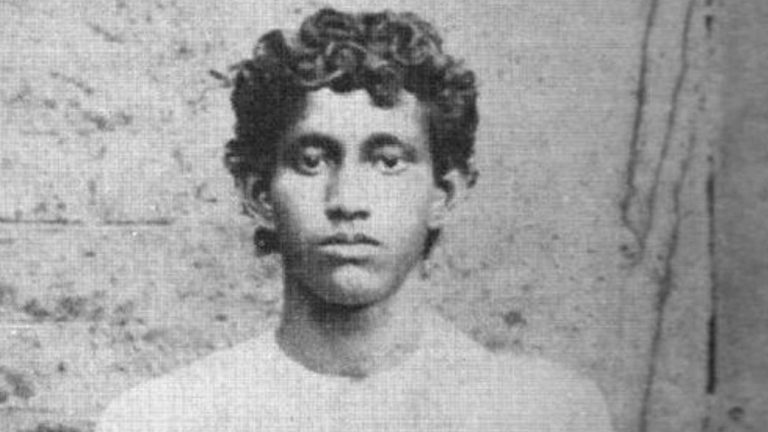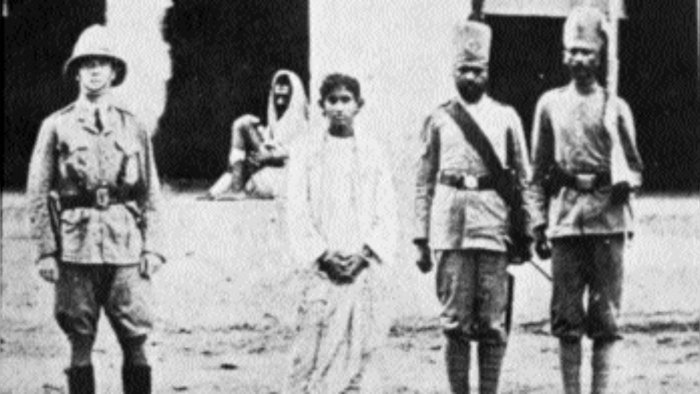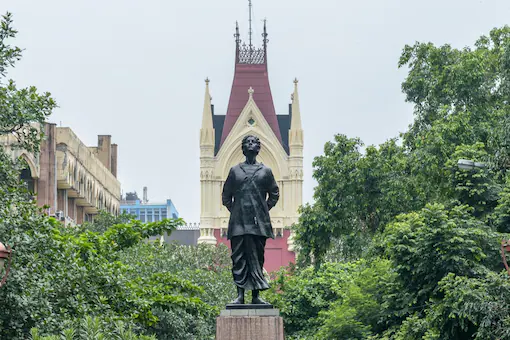
Can you imagine someone giving up life for the sake of the country’s freedom at an age when youth begins to blossom?
Any mention of Bose is incomplete without an ode to the famous song penned by poet Pitambar Das in his honor: “Mother, bid me farewell once, I will be back soon, India will watch me while I wear the noose with a smile”.
At an age when youth begins to blossom, can you imagine someone giving up their life for the sake of the country’s freedom? At 18, one man took it upon himself to free his motherland from the clutches of British rule.
Born on December 3, 1889, in a small village named Mohobani in the Medinipur district of then undivided Bengal (present West Bengal), Khudiram was the fourth child in a family of three daughters. He lost his mother when he was six years old.
From his adolescent years he was drawn towards revolutionary activities, being inspired by a series of public lectures given by Sri Aurobindo and sister Nivedita, when the duo visited Midnapore in the early 1900s.
In 1905, when Bengal was partitioned, he actively participated in protests against the British. At the age of 15, Bose joined the Anushilan Samiti, an early 20th century organization that propounded revolutionary activities in Bengal. Within a year, he had learnt how to make bombs and would plant them in front of police stations.
The deciding moment of Bose’s life came in 1908 when he along with another revolutionary, Prafulla Chaki were assigned the task of assassinating the district magistrate of Muzaffarpur, Kingsford. Before being transferred to Muzaffarpur, Kingsford was a magistrate in Bengal. His tortuous clamping down on revolutionaries, had earned him the ire of this young group of nationalists who decided to hurl a bomb on him.
There were multiple attempts to assassinate Kingsford. Initially the plan was to throw the bomb in the court. However, after much deliberation it was decided to avoid the court since a lot of civilians might get injured. Thereafter, on April 30, 1908, Bose threw a bomb on a carriage which he suspected was carrying Kingsford. But it turned out that it was carrying the wife and daughter of a barrister named Pringle Kennedy, who lost their lives, as Kingsford escaped.
By midnight the entire town was aware of the incident and the Calcutta police was summoned to catch the duo. Bose was arrested from a railway station called Waini where he had reached next morning after having walked 25 miles. Chaki on the other hand, killed himself before he could get arrested.
As Bose was brought handcuffed to the police station at Muzaffarpur, the entire town crowded around to take a look at the teenaged boy. The following morning’s Statesman carried a vivid account of the scene as it reported, “The Railway station was crowded to see the boy. A mere boy of 18 or 19 years old, who looked quite determined. He came out of a first-class compartment and walked all the way to the phaeton, kept for him outside, like a cheerful boy who knows no anxiety… on taking his seat the boy cheerfully cried ‘Vandemataram’.” Bose took full responsibility for the incident.
On May 21, 1908, the historic trial of Bose began presided by Judge Corndoff, Nathuni Prasad and Janak Prasad in the Jury. Bose’s lawyer Narendra Kumar argued that he was too young to be able to make bombs. However, the judges had evidence of more revolutionary activities planned.
 On July 13, 1908, Bose was finally sentenced to death. When the English judge asked him if he understood the meaning of the sentence, Bose is known to have smiled and calmly said, “Yes, I do and my lawyer said that I was too young to make bombs. If you allow me some time before I’m taken away from here, I can teach you the skills of making bombs too.” Bose accepted the verdict with a smile, much to the shock of the English judge. Soon after, the streets of Calcutta swelled up in large protests by the student community for several days. He was executed on August 11, 1908.
On July 13, 1908, Bose was finally sentenced to death. When the English judge asked him if he understood the meaning of the sentence, Bose is known to have smiled and calmly said, “Yes, I do and my lawyer said that I was too young to make bombs. If you allow me some time before I’m taken away from here, I can teach you the skills of making bombs too.” Bose accepted the verdict with a smile, much to the shock of the English judge. Soon after, the streets of Calcutta swelled up in large protests by the student community for several days. He was executed on August 11, 1908.
Lack of recognition
Khudiram Bose sacrificed his life “with a smile” when he was just at the cusp of adulthood. Stories about the love he had for his motherland have been shared over generations, through popular folktales in Bengal. But outside the state, his name remains largely in the shadows. This could be because Bose never received the limelight that other freedom fighters got. Even after his death, his story never made it to popular culture, be it in films, biopics, TV shows, or well-known books based on India’s freedom movement. Everyone knows about Mahatma Gandhi, Bhagat Singh, Netaji Subhas Chandra Bose and others, but there has hardly been any mention of Khudiram Bose in mainstream discussions about the freedom struggle.
It is also surprising that from Bengal, only Netaji received national attention. This, despite the fact that the state was a hotbed of the Independence movement, and gave numerous freedom fighters, including Masterda Surya Sen, Prafulla Chaki, Matangini Hazra, the famous trio, Binoy Badal Dinesh, Pritilata Waddedar — but all of them still remain relatively unknown, just like Khudiram Bose.

Not just a ‘Bengali hero’
Bose might be from Bengal, but he fought against the tyranny of colonialism for the Independence of entire country. Any Indian citizen, and not just Bengalis, should feel enraged that Bose’s image was placed in a picture gallery of wanted fugitives.
His death did not just inspire young people in Bengal to join the freedom movement, but ignited the nation’s collective fury against British rule.
Any mention of Bose is incomplete without an ode to the famous song penned by poet Pitambar Das in his honor.
Young Bose’s fearlessness, bravery and love for his motherland have been aptly captured in Das’ immortal song that opens with these powerful lines: Ekbar biday de Maa ghure ashi, Hashi hashi porbo phasi dekhbe bharatbasi (Mother, bid me farewell once, I will be back soon, India will watch me while I wear the noose with a smile).
___________________
Source: Indian Express, The Print